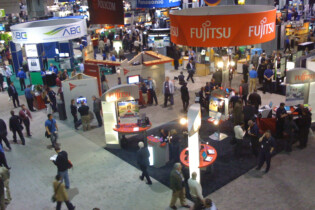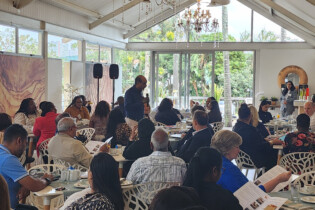Understanding HR practices is crucial for exhibition planners to manage their teams effectively and adapt to the evolving workplace landscape. The following insights provide key strategies and considerations to help exhibition planners navigate HR challenges and optimise their workforce management.
- Adapting to post-pandemic changes
The pandemic has significantly altered the way businesses operate, emphasising the need for flexible and adaptive HR practices. Remote and hybrid working models have become the norm, allowing employees to balance work and personal life more effectively.
- Flexible working models
Studies show that a significant percentage of employees demand flexible working arrangements. In South Africa, 90% of workers prefer hybrid working models. Exhibition planners should consider implementing hybrid work policies to enhance employee satisfaction and productivity.
- Employee recognition and rewards
Recognising and rewarding employees for their contributions fosters a positive work environment and motivates staff. Simple gestures, such as quarterly awards for high performers or small incentives, can significantly boost morale.
- Career progression and skill development
Offering opportunities for career progression and skills development is essential for retaining top talent. Providing training modules, skills improvement programmes, and clear pathways for advancement helps employees feel valued and engaged.
- Resources for remote working
Equipping employees with the necessary resources for remote work is crucial. This includes providing laptops, printers, and other essential tools. Supporting remote work infrastructure demonstrates a commitment to employee success and productivity.
- Empathetic leadership
Empathetic leadership involves understanding and addressing the personal and professional needs of employees. Regular one-on-one sessions to discuss employee well-being and career aspirations can create a supportive and motivated workforce.
- Wellness programmes and mental health support
Wellness programmes and mental health support are increasingly important in today’s work environment. Providing access to mental health professionals and wellness resources helps maintain a healthy and productive workforce.
- Technological integration
Leveraging technology, such as CRM systems and virtual meeting platforms, streamlines HR processes and enhances communication. Virtual interviews and remote onboarding processes have become standard practices, enabling efficient talent acquisition.
- Balancing employee expectations and business needs
Balancing the expectations of employees with the operational needs of the business is critical. Transparent communication about performance expectations and flexible work policies can help achieve this balance.
- Embracing change and continuous improvement
The exhibition industry, like many others, must continuously adapt to changing circumstances and improve HR practices. Staying updated with industry trends and implementing innovative solutions ensures long-term success and employee satisfaction.
By incorporating these HR insights, exhibition planners can create a supportive and efficient work environment that attracts and retains top talent. Adapting to the new normal, recognising employee contributions, and providing necessary resources are key to thriving in the dynamic exhibition industry.







